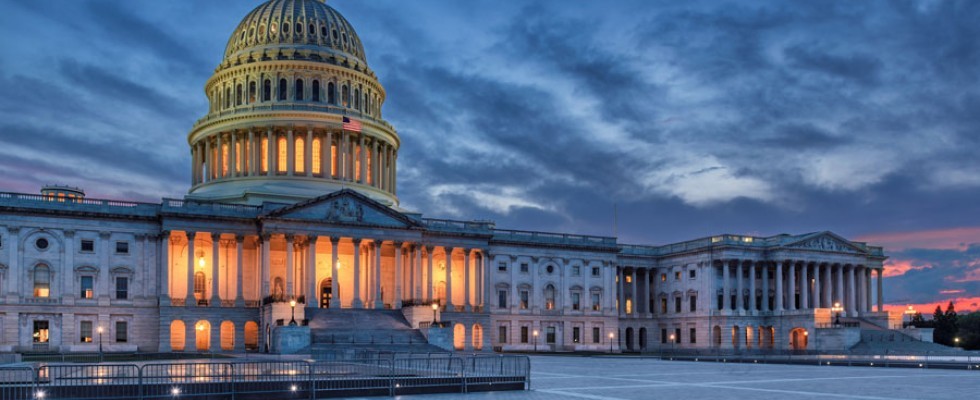
2020 was a year of change. The coronavirus pandemic fundamentally changed how people do business. Legislation based on the crisis helped people stay at work and make ends meet. With more virtual options than ever in health care, Congress stepped in to protect consumer access—and help providers. As 2021 begins, a new Congress steps up to tackle these and other issues. With many industry champions losing or leaving their seats, the new year promises to be a busy one.
Find in-depth looks at each piece of legislation here.
*Status is correct at press time.

Major COVID-19-related Legislation
CARES Act
SUMMARY
The CARES Act provided a $2 trillion stimulus for the American economy, sending people checks to help with bills, groceries and other items. American small businesses received payments to help keep employees on payroll.
STATUS
President Trump signed the act into law on March 18, 2020; it is Public Law No. 116-136.
WHAT NEXT?
A second stimulus package has been proposed but has not been approved.
Families First Coronavirus Response Act
SUMMARY
Provides paid sick leave, tax credits and free COVID-19 testing; expands food assistance and unemployment benefits; and increases Medicaid funding.
STATUS
President Trump signed the act into law on March 18, 2020. It is Public Law No. 116-127.
WHAT NEXT?
Certain health care providers were excluded from the provisions. A September rule from the Department of Labor clarified what a health care provider is, clarifying that home health providers are exempt.
PPP Flexibility Act
SUMMARY
Created as part of the CARES Act, the Paycheck Protection Program (PPP) served as the driver for the stimulus package. The PPP Flexibility Act modified provisions related to loan forgiveness.
STATUS
Signed into law June 5, 2020. It is Public Law 116-142.
WHAT NEXT?
Small businesses will be better able to carry out the PPP as it was intended, without worrying about loan forgiveness.
COVID-19 Hospice Respite Care Relief Act Of 2020
SUMMARY
S. 4423 gives the secretary of the Department of Health and Human Services authority during a public health emergency to waive some restrictions on hospice providers to ensure families and patients receive needed respite care.
STATUS
Died in committee.
WHAT NEXT?
This bill enjoyed wide industry support; advocacy is ongoing.

Oxygen-Related Legislation
H.R. 8158
SUMMARY
CMS applied a budget neutrality “offset” to the 2017 rural fee schedules for stationary oxygen equipment. This hampered reimbursement. HR 8158 waives the budget neutrality provision on stationary oxygen products.
STATUS
The full bill was sent to the House for consideration in September but has not progressed further.
WHAT NEXT?
The American Association for Homecare plans to continue pushing for this change.

Telehealth Related Legislation
Protecting Access To Post-COVID-19 Telehealth Act
SUMMARY
The pandemic led to a relaxing of many rules and regulations surrounding telehealth. The Protecting Access to Post-COVID-19 Telehealth Act would expand access to telehealth after the end of the crisis.
STATUS
Died in committee.
WHAT NEXT?
Advocacy is ongoing.
HEAT Act
SUMMARY
The Medicare home health benefit does not currently reimburse for telehealth services. Temporary measures opened reimbursement. The HEAT Act would allow for telehealth reimbursement during times of crisis.
STATUS
S 4854 and its companion, HR 8677, died in committee.
WHAT NEXT?
These acts enjoy wide industry support. Advocacy is ongoing.

Hospice-Related Legislation
Hospice Care Improvement Act of 2019
SUMMARY
After federal reports expressing concerns about hospice quality and safety, this bill was introduced to change reporting requirements and surveys.
STATUS
S 2807 was introduced in the Senate in late 2019; it died in committee.
WHAT NEXT?
Advocacy is ongoing. The bill has support from NAHC.
BENES Act
SUMMARY
The act not only improves Medicare enrollment education, but also addresses concerns from the Office of Inspector General on hospice quality and safety.
STATUS
HR 2477/S 1280 passed the House on Dec. 8, 2020.
WHAT NEXT?
The National Association for Home Care & Hospice (NAHC) is seeking changes as the bill heads to the Senate.

Health Savings Accounts
Homecare for Seniors Act
SUMMARY
Individuals age 55 and over would be able to add up to $3,550 a year to be used for qualified homecare services.
STATUS
HR 2878 died in committee.
WHAT NEXT?
NAHC and other industry groups support these changes. Advocacy is ongoing.

Aging In Place
Granny Pods Study Act of 2019
SUMMARY
HR 7493 opens the possibility for seniors to age in “granny pods” near their family.
STATUS
Died in committee.
WHAT NEXT?
The act doesn’t have much industry support; however, the Building Age-Friendly Communities Act of 2019 is supported by VGM Live at Home and others.
